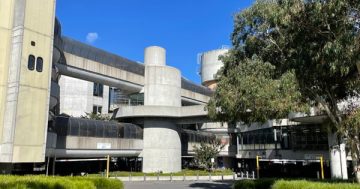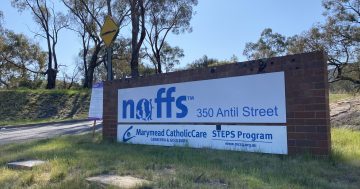
An auditor general’s report has concluded prisoners with mental health conditions do not receive adequate care due to a shortage of psychologists. Photo: File.
Prisoners in the Alexander Maconochie Centre don’t receive adequate mental health treatment due to a shortage of psychologists, a damning ACT Auditor-General’s report has concluded.
The report has found the prison has funding for 16 full-time equivalent staff including registered nurses and forensic psychologists but only 11.2 of these positions are currently filled.
“The most significant shortfall in staff occurs in the number of psychologists; only two of the four budgeted positions have been filled as of April 2021,” the report read.
Furthermore, the two psychology positions that have been filled are the two most junior roles.
For the detainee in question, “this had resulted in the need to rebuild rapport and re-establish trust, in addition to changes in the treatment plan, particularly around medication”.
According to the report, Canberra Health Services acknowledged such concerns but noted “the movement of staff within health services is not uncommon”.
READ ALSO: ACTCOSS calls on Housing ACT to put ‘heartless’ relocation process on hold‘
“It is therefore important to consider continuity of care processes under these circumstances. This can be enhanced by ensuring data is readily available for treating teams and clinicians to assist in planning for individual patient handovers. This would be improved by ensuring care plans are comprehensive and include detailed case notes,” the report recommended.
It made 19 recommendations, many of them related to increasing the provision of data. This, and insufficient record-keeping, was raised as a concern.
Clear reporting lines to provide better communication between ACT Corrective Services and Canberra Health Services should also be established, it said.
Also found to be of particular concern was the treatment of Aboriginal and Torres Strait Islander detainees.
Although screening processes were deemed effective for this group, the report found the delivery of mental health services was ineffective. Furthermore, it identified additional opportunities for input from Indigenous service providers at every stage of the process “from screening to the delivery of services and release”.
The report called for greater oversight of the services delivered by Winnunga Nimmityjah Aboriginal Health and Community Services.
“While occurring informally, there is no established process to ensure that advice and support is sought from Winnunga, or any other Aboriginal or Torres Strait Islander health professional, for Aboriginal and Torres Strait Islander detainees at risk of suicide and self-harm,” the report said.
The report said Winnunga or another service should be consulted to develop release plans for Aboriginal and Torres Strait Islander detainees and to provide advice regarding treatment plans for any Indigenous detainees deemed high risk.
The audit did find that screening processes for non-Aboriginal and Torres Strait Islander detainees were effective.
Also found to be effective was the delivery of mental health services to detainees who are considered the highest risk of suicide or self-harm but care for lower-risk detainees was deemed ineffective.
The audit, which was completed by Auditor-General Michael Harris, assessed the effectiveness of governance and administrative arrangements, screening processes, development and delivery of mental health services, monitoring of outcomes and transfer arrangements for detainees transitioning from custody.





















